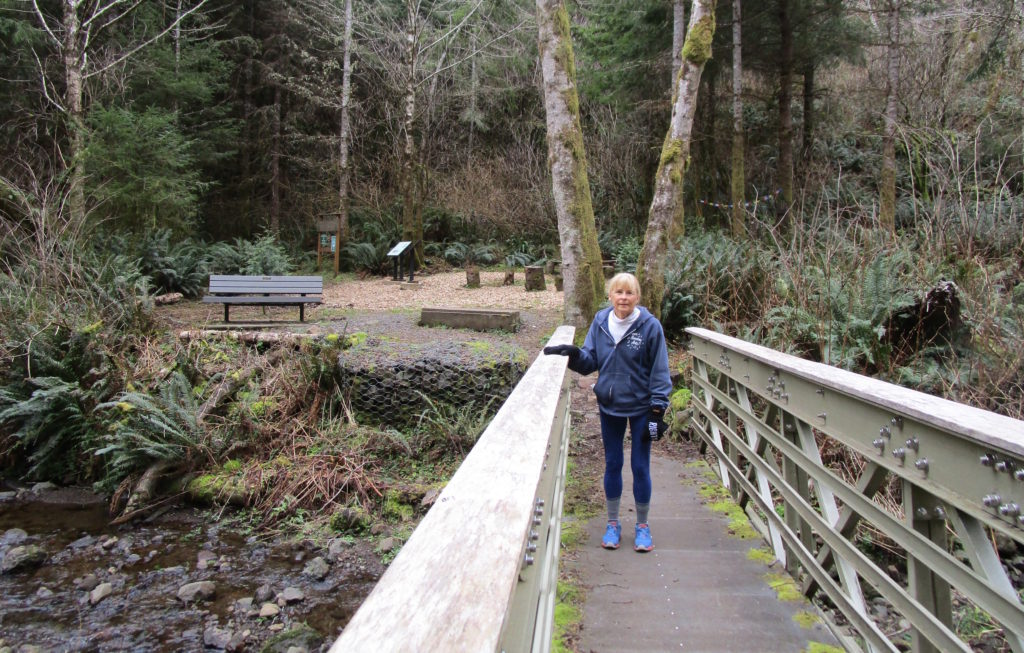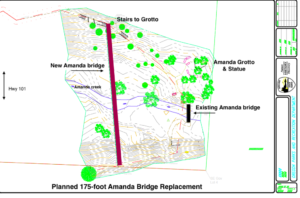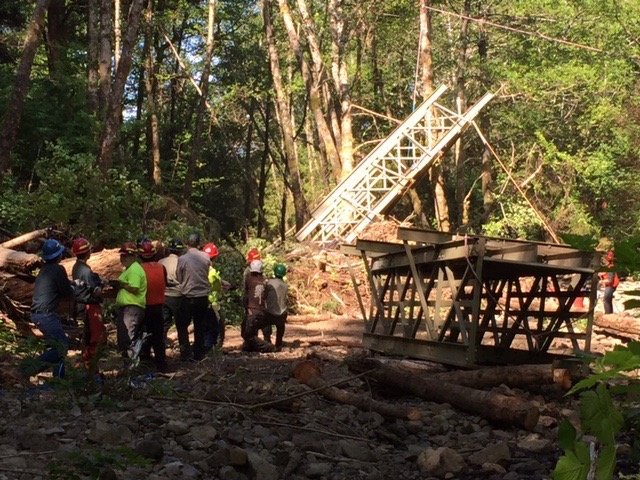
By DANA TIMS/YachatsNews.com
After a surprising halt due to the financially devastating impact of the coronavirus, the Amanda Trail bridge project – considered one of the most historically and culturally significant projects on the Oregon Coast — is back on.
State parks officials said Thursday that a new suspension bridge, intended to replace one wiped out four years ago by a massive landslide, will move ahead as staffing and planning time permit.
The announcement came just weeks after it appeared that drastic, Covid-related cutbacks and furloughs would wrap the project in mothballs for months or years.
“I’ll put it this way,” said Dennis Comfort, Oregon state parks’ coastal region manager. “If we were running a marathon, someone just handed us a little Gatorade.”
There is still no timeframe for either starting or completing the 142-foot-long suspension bridge over Amanda Creek south of Yachats, he said. But given the substantial support the project enjoys from a variety of public and private groups, along with money already raised, parks officials decided to move ahead as quickly as possible.

Only months ago, the bridge replacement project appeared on track for an autumn launch. Then the coronavirus hit, closing campgrounds and other facilities that were expected to generate the revenues needed to move forward.
Now, with new life pumped back into a new bridge, long-time supporters say they are ready to finally see the span through to completion.
“This has all been a roller coaster ride, for sure,” said Joanne Kittel, a long-time Yachats resident who has remained a force behind the project for decades. “But maybe the most heartfelt thing I’ve heard is that the state wants to move ahead simply because it’s the right thing to do. And it is.”
The trail is named for Amanda Du-Cuys, one of hundreds of coastal Indians forced at gunpoint by U.S. soldiers in the 1850s and 1860s to march up the coast – often barefoot and over flesh-cutting rocks – to a military facility in present-day Yachats.
Amanda, who was forced to leave her husband and daughter, is thought to be one of at least 300 Indians who died at the military camp between 1855 and 1870.
Total cost of the project is about $400,000, said Comfort. Of that, about $300,000 is for the new bridge, with the rest accounting for engineering studies, plan designs and related work needed to accommodate the bridge.
In addition to money from the state, critical contributions have come from View the Future, the Yachats non-profit co-founded by Kittel; the Three Rivers Foundation, the charitable arm of the Confederated Tribes of the Coos, Lower Umpqua and Siuslaw Indians; the Confederated Tribes of Siletz Indians of Oregon; the city of Yachats; the Perpetua Foundation/Discover Your Northwest, and Lincoln County’s land legacy program.
Significant funding is also coming from the Federal Emergency Management Agency, which already had committed money to help replace the bridge wiped out in the 2015 landslide.
“This is a great project and we will stand behind it until it is completed,” Robert Kennta, cultural resources director for the Confederated Tribes of Siletz Indians, said in a recent interview. “It remains very heartening to see so much support for it.”



